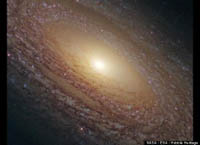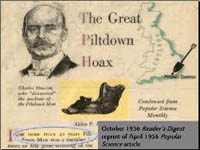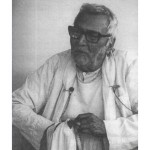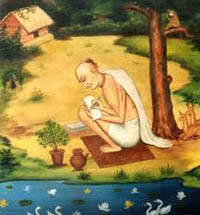 Physicists try to explain reality by observing and measuring the universe. From Isaac Newton’s laws of motion to Albert Einstein’s general theory of relativity to the latest theories of dark matter and dark energy, the basic premise of this science is that given enough time and the proper tools, everything in the universe can be explained.
Physicists try to explain reality by observing and measuring the universe. From Isaac Newton’s laws of motion to Albert Einstein’s general theory of relativity to the latest theories of dark matter and dark energy, the basic premise of this science is that given enough time and the proper tools, everything in the universe can be explained.
Some of their explanations sound like common sense. Newton’s 3rd law of motion states: “For every action there is always an equal and opposite reaction.” This sounds an awful lot like the Vedantic law of karma which states that every action we perform produces an equal and opposite reaction, which directly influences our very existence.

Physicists like Albert Einstein have tried to explain how the universe works.
Einstein’s theories of relativity are more complicated, but even for a lay person like me, they are almost comprehensible. However, some theories are so esoteric that hardly anyone can understand them – even scientists! In a recent article by the BBC’s science writer Philip Ball discussing the theories of quantum mechanics, he wrote: “If the baffling behaviour of subatomic particles leaves you scratching your head with confusion, don’t worry. Physicists don’t really comprehend it either.”
Science is limited to explaining phenomena we can perceive with our senses.
The scientific method has given our society important advancements in medicine, nutrition, engineering and many other fields that have raised the standard of living for all of us. Many men and women have dedicated their lives to help improve our living conditions. However, science is limited and at its best it can only explain those phenomena that can be perceived with our senses. Even though a tool may be used to extend the abilities of the senses, still there is a limit to scientific observation. An electron microscope may allow the eye to see things that are extremely small, or a giant telescope can look into the depths of outer space. But can any type of microscope or other tool allow us to see our own soul? These tools can expand the abilities of our senses but do not go beyond the senses to the spiritual realm.

Giant telescopes can expand the abilities of our senses, but can not see into the spiritual realm.
Science can explain some of our physical reality, but many scientific theories evolve from mental speculation based on a few measurements or observations. Theories come in and out of fashion. Over the last 150 years, the theory of how the moon formed has gone from suddenly a large portion of the earth flying off into space, to a giant impact with another planet, to a bunch of small planets smashing into each other. Now the current theory has returned to a portion of the earth’s mantle spinning off into space.
Can scientific inquiry satisfy our hankering for perfect knowledge?
The quest for knowledge and understanding is a natural quality of the soul. We could spend our whole life studying one particular aspect of this vast universe. But is this enough? Will this scientific inquiry satisfy our inner hankering for perfect knowledge, happiness, and eternal life? Or will it only temporarily satisfy our intellect? Will these scientific advancements help our eternal situation or just this temporary existence of our body and mind during this lifetime?
The Vedas advise that the human form of life should be used to understand the highest truth. Don’t waste this golden opportunity!
Srila Bhakti Rakshak Sridhar Dev-Goswami Maharaj has written about the advice of’ Rig-Veda, the first Veda that descends from the upper world to this world, in his book Sermons of the Guardian of Devotion, Volume 2:
“The primary requirement for you all is to conceive that there is a world above, and ‘above’ means in the line of consciousness. Your highest identity is that of consciousness, and you must adopt that conscious world above you as your shelter. You will live and move there. This is the radical change.”
Faith is a part of everyday life.
But if spiritual knowledge is beyond our sense perception, where do we get it? The acquisition of real knowledge requires some faith. Actually many of our daily activities require faith. A parent has faith that when they take their child to a doctor for a vaccination that the science behind this medicine is accurate. They have faith that the drug manufacturer has followed the safest practices to produce the vaccine. They have faith the doctor is actually giving them the real medicine and not substituting it with something else. Now, is the parent’s faith well placed or is it misguided? Armed with the best knowledge that is available to us, we proceed in a certain direction, but usually with some degree of faith.
Sometimes the knowledge we are given is tainted. There are many stories of people abusing their position and causing harm when they pretend to be helping. Scientists, politicians, religious leaders, teachers, no group is exempt from having at least a few cheaters as members. As humans we are subject to many defects: imperfect senses, forgetfulness, enviousness, selfishness, etc. How true is the adage: “To err is human”.
Is the scientist a noble researcher or someone following a lust for recognition?
Dr. Morton Meyers, professor of medicine at the School of Medicine at State University of New York at Stony Brook wrote in his book Prize Fight: The Race and the Rivalry to be the First in Science: “The scientist is generally viewed as detached, objective, dispassionate, but nothing could be further from the truth…the general perception of scientists is that they are considered noble researchers trying to – in Einstein’s elegant phrase – lift the corner of the veil as to how nature operates.” He goes on to explain: “But associated with that is an equally powerful motivation to be recognized, to get credit for their accomplishment, and it’s over that lust for recognition shared by many of us in terms of an achievement that leads to often bitter conflicts and disputes, and even what’s referred euphemistically as scientific misconduct.”
Arturo Casadevall, a professor of microbiology at the Albert Einstein College of Medicine in New York wrote that fraud was the number one reason for retractions in the scientific journals and papers that he studied. He explains that in science, “there’s a disproportionate reward system so if a researcher is published in certain prominent journals they are more likely to get jobs and funding, so the temptations increase.”

The Piltdown Man is the greatest hoax in science history.
Then there is the infamous Piltdown affair. In 1953 the highly respected Bulletin of the British Museum published a scientific paper describing the remarkable and important fossils discovered at a place called Piltdown in the U.K. These fossils were presented as conclusive evidence of the “missing link” in human evolution. Unfortunately it was an elaborate hoax which included even filing down some of the bones to fit in with their evolutionary theory!
Is perfect knowledge even available in this world to the sincere seeker?
Srila Sridhar Maharaj has written in the introduction to his book Sri Guru and His Grace about the position in our world of the saintly person:

Srila Sridhar Maharaj disseminated genuine spiritual knowledge to sincere seekers from all over the world.
“The imperfect is not so if it is not in need of help, and that also from beyond itself. The perfect is not perfect if He cannot assert Himself or help others, and that too, of His own accord. So the guidance to perfection or Absolute Truth is necessarily a function of the absolute Himself, and the divine agent through whom this function manifests is Sri Guru or the divine guide.”
The necessity of a qualified spiritual guide or saintly teacher is also described by Sri Krishna in the Bhagavad-Gita:
Tad viddhi pranipatena, pariprasnena sevaya
updeksyanti te jnanam, jnaninas tattva-darsinah
Bhagavad-Gita, 4:34
“To understand transcendental knowledge, you must approach a self-realized soul, accept him as your spiritual master, and take initiation from him. Inquire submissively and render service unto him. Self-realized souls can impart knowledge unto you, for they have seen the truth.”
Where do we find such a saintly self-realized soul? Sincerity is the first step. A sincere seeker of the absolute truth is guided to a genuine teacher by the Supreme Absolute from within his heart. Srila Krishna Das Kaviraj Goswami wrote:

Srila Krishna Das Kaviraj wrote the great spiritual treatise Sri Chaitanya Charitamrta, which describes the life and teachings of Sri Chaitanya Mahaprabhu.
Jive saksat nahi tate guru chaittya-rupe
siksa-guru haya Krishna-mahanta-svarupe
Chaitanya Charitamrta, Adi Lila 1:58
“Since one cannot visually experience the presence of the Supersoul, He appears before us as a liberated devotee. Such a spiritual master is none other than Krishna Himself.”
Is the foundation of scientific inquiry based on a false premise?
From an early age we are taught that we are the subject and everything is meant for our enjoyment and exploitation. But this is a conception that is completely false! Science is being used to enhance our ability to exploit everything around us. Science is seldom used to help us on the path of understanding the absolute truth. If we want to gain knowledge about the cycle of birth and death, the nature of the soul or attaining eternal happiness, first it is necessary to have a genuine desire to search for the truth. We must have faith and chastity in our spiritual guide and through service we will get some spiritual benefit. Then that transcendental knowledge will come to us from above through the Absolute’s divine agent, the saint, Sri Guru.
